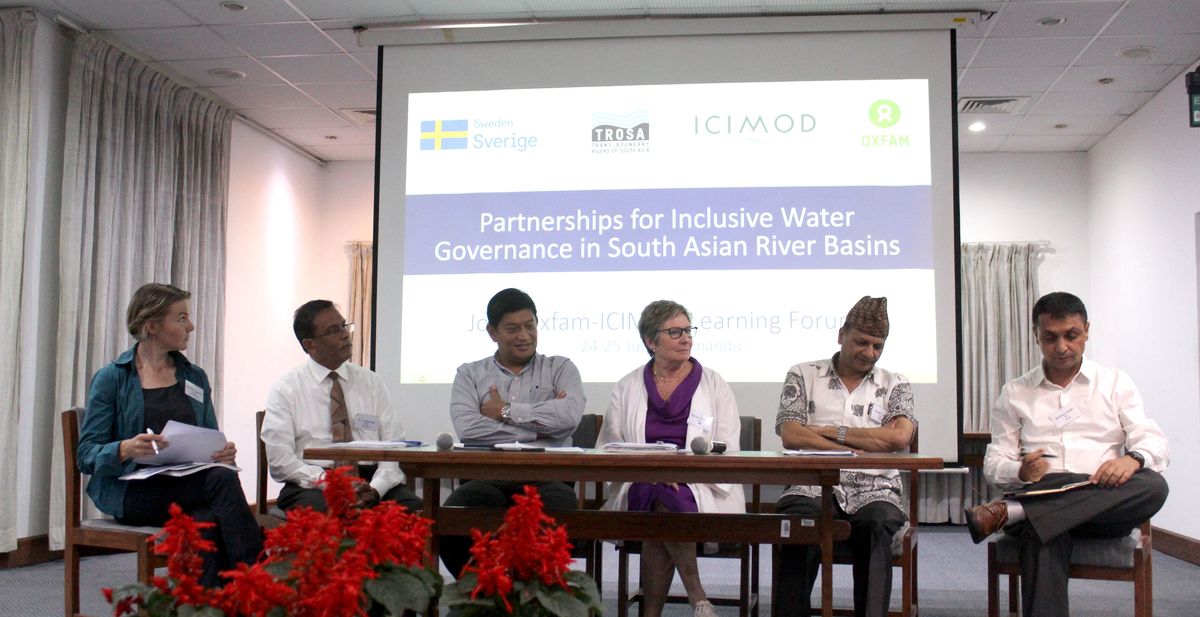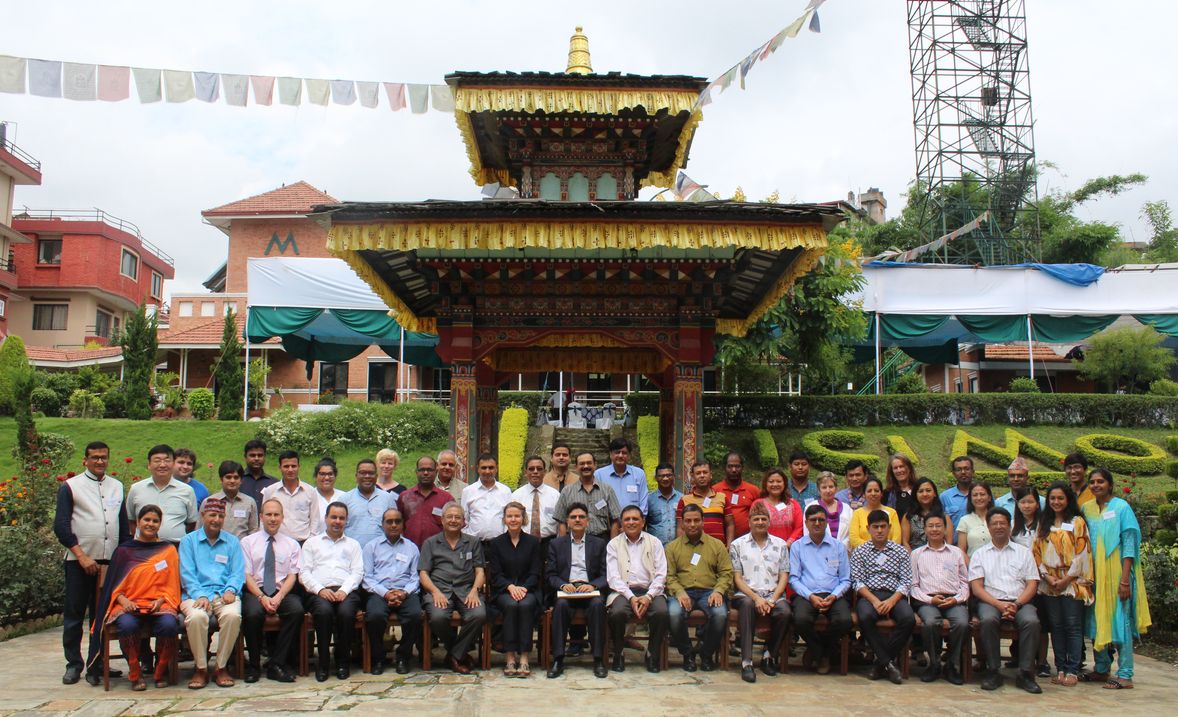TROSA is a five-year regional programme (2017-2021) funded by the Government of Sweden and implemented by Oxfam Cambodia - this was the first Annual Learning Forum organised by TROSA for its partners. The forum was co-convened by TROSA Secretariat, Oxfam Cambodia, Integrated Mountain Development (ICIMOD) and United Nations Economic Commission for Europe (UNECE). Altogether nearly 60 local, national and regional partners of TROSA attended the Forum. They included the International Union for Conservation of Nature (IUCN) Asia Regional Office; World Wildlife Forum (WWF) Nepal; UNECE Secretariat; Ministry of Agriculture and Forestry, Government of Finland; Councellor (Development) Embassy of Finland in Katmandu, a representative from Regional Coordination and Support for the EU-Central Asia and International Finance Cooperation (IFC) etc. In addition, researchers, key policy makers and top bureaucrats such as the Join Secretary of Ministry of Water Resources and Under-Secretary, Ministry of Foreign Affairs from Government of Nepal were present at the forum.
TROSA Implementing Partners - IUCN, WWF, ICIMOD, local NGOs and Oxfam Country representatives of Bangladesh, India, Nepal and Myanmar presented the progress of programme implantation. The forum facilitated discussions between the partners and with relevant external audience on lessons-learnt and insights. It is expected that this discussion would foster longer-term engagement and synergies with other programmes and networks working on transboundary water cooperation issues in the region.
The panel discussion on “Partnerships for inclusive water governance” was turned out to be the most important and relevant session for most of the stakeholders including GWP. Lal Induruwage, Regional Coordinator, GWP South Asia participated as one the panelists with another four representing ICIMOD, OXFAM, IFC and Water Convention Secretariat. It was emphasised that the bottom up approach is the key for successful transboundary water governance. Although transboundary water governance is purely a technical subject that could have been managed by technical experts, this was politicized in most of the cases spreading mistrust among countries/regions.

The workshop on the UNECE Water Convention - Convention on the Protection and Use of Transboundary Watercourses and International Lakes was held back-to-back with the TROSA Forum. This was held on Thursday, 26 July facilitated by UNEDE, the Embassy of Finland in Katmandu and ICIMOD. The workshop enabled a dialogue among South Asian countries about the implications and benefits of joining the community and regime of the Water Convention, and contributing to its future development.
Follow up:
TROSA Team together with GWP South Asia put forward their thoughts on exploring the possibility of instigating TROSA-GWP collaborations on:
- Youth and water governance in south Asia
- South-South learning and
- Sub-regional cooperation
Background:
- TROSA is working to support poverty reduction among communities living in the transboundary river basins of Ganges, Brahmaputra, Meghna (GBM) and Salween. The programme is funded by the Government of Sweden and implemented by Oxfam Cambodia and some other national and regional partners. TROSA concluded its first year of implementation in June 2018.
- For more than 20 years, the Convention on the Protection and Use of Transboundary Watercourses and International Lakes (signed in 1992 in Helsinki, into force in 1996) has provided a unique legal and institutional framework for sustainable management of shared water resources, both surface and groundwater. Some 100 countries have already participated in the Convention’s meetings or activities. Most countries in Central Asia are already Parties to the Convention and there is also interest in South Asia.
